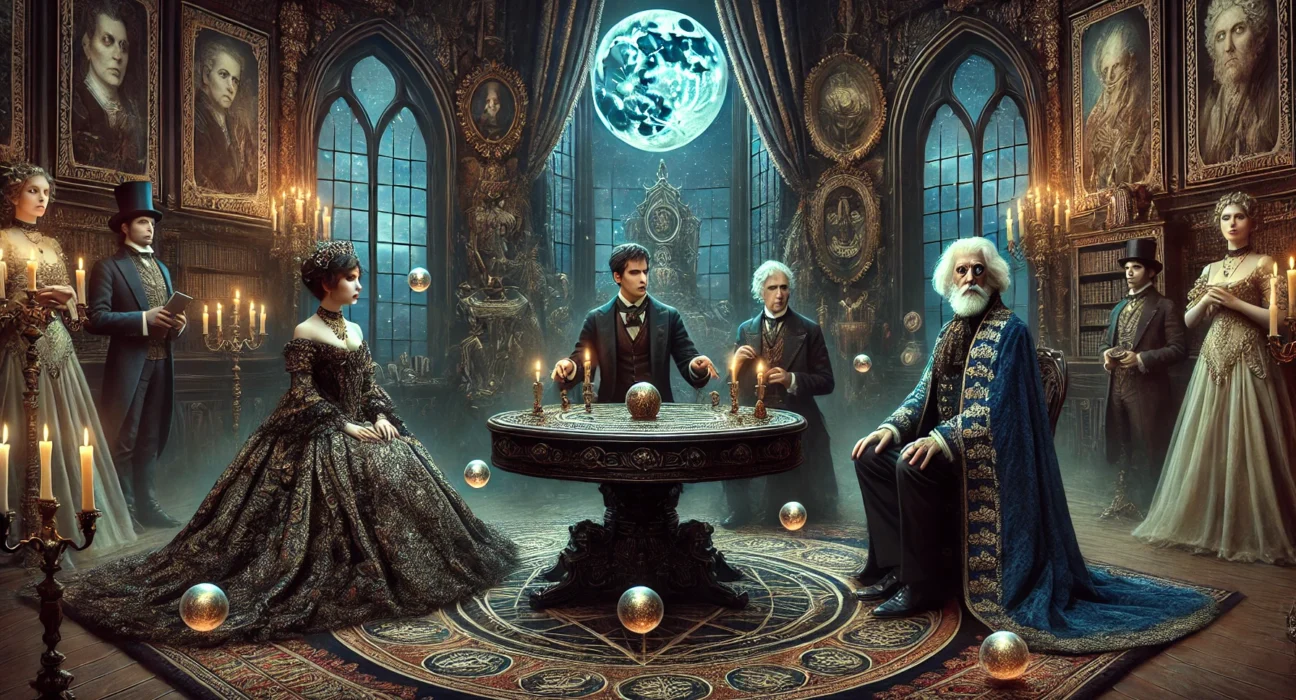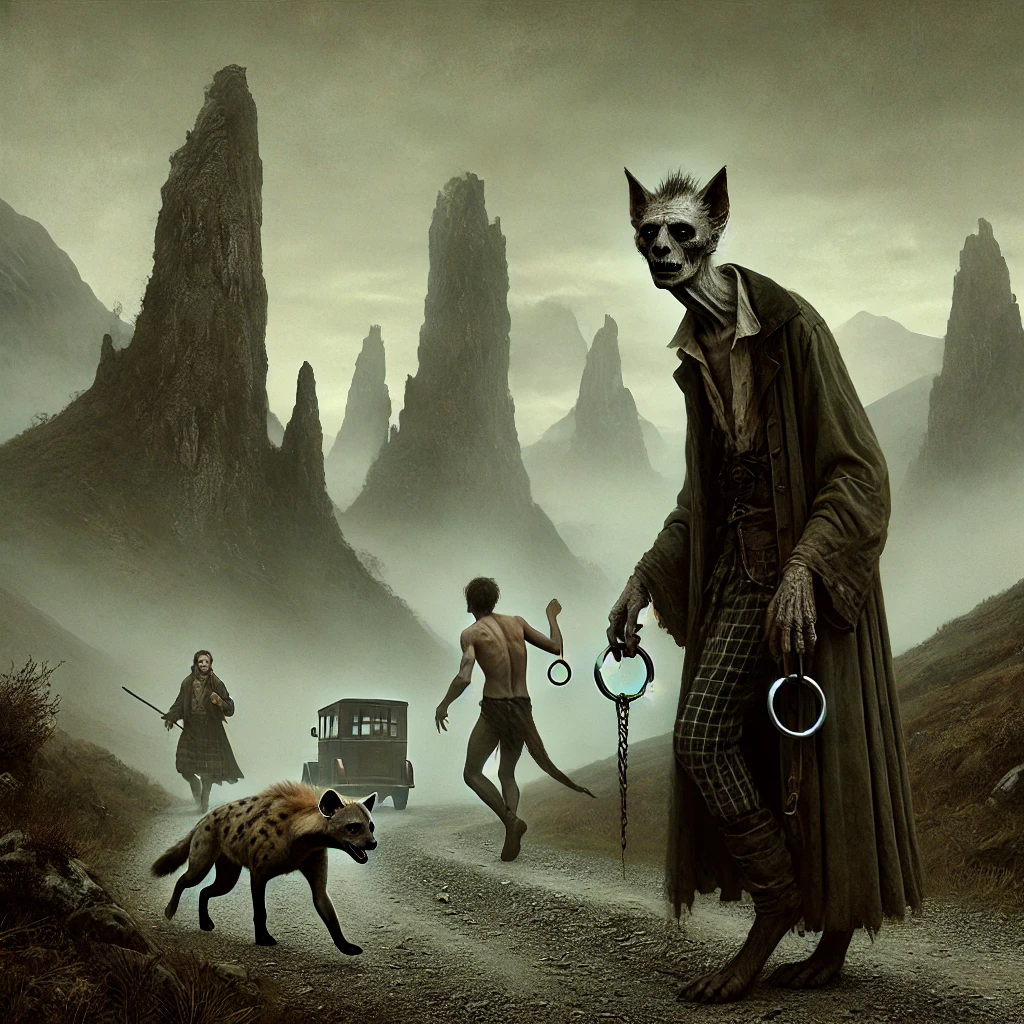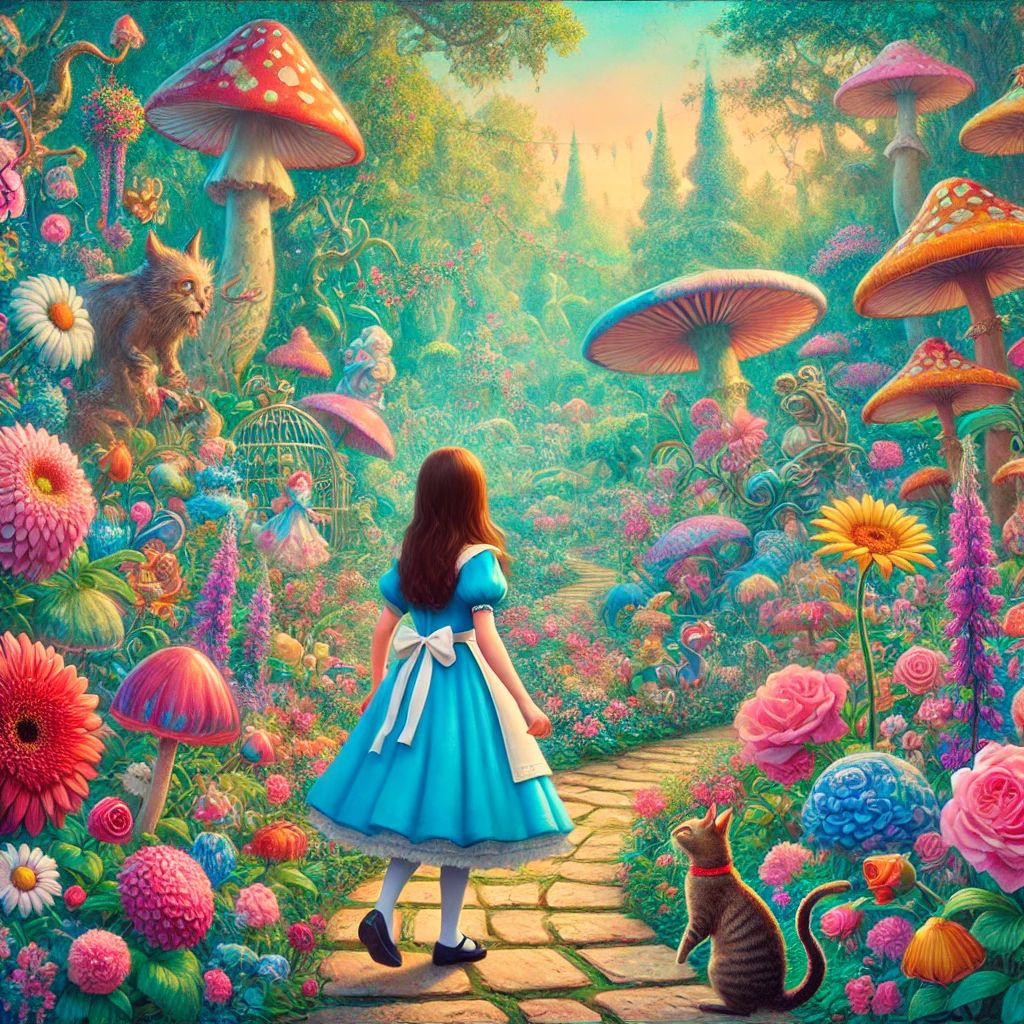Moonchild by Aleister Crowley (1917), set in the shadowy worlds of ritual magic and occult warfare, is an ambitious narrative that intertwines mysticism, esoteric philosophy, and the supernatural. Crowley—an influential occultist, mystic, and founder of the religious philosophy Thelema—delves into themes of spiritual creation, cosmic forces, and the thin veil between light and dark magic. With a richly layered prose, Crowley paints an enigmatic tale of a group of magicians seeking to create a “Moonchild,” a being born under lunar influence with a pure, supernatural essence. Infused with allegory, dry humor, and his provocative style, Moonchild is both an exploration of the mystical and a bold satire of human ambition.
Plot Summary
London simmered under a gray October sky when Lavinia King, the world-renowned dancer, arrived at Charing Cross Station. Settling into her hotel suite, she opened the windows to release the stuffiness of her travel. Her longtime friend, Lisa la Giuffria, had been celebrating her birthday in a chaotic whirl, pushing Lavinia to her limits of patience. Lavinia, aloof and glamorous, barely noticed the strangeness of the evening, even when a new acquaintance, the mysterious Cyril Grey, appeared with his quiet yet commanding presence. Cyril’s intensity and ease left an indelible mark on Lisa, a fascination that would soon deepen into something more dangerous.
Days after that night, Lisa found herself irresistibly drawn to Cyril, despite his unsettling and almost mocking demeanor. When Cyril made a sudden appearance, his mere presence overwhelmed her. With an inexplicable pull, he seized her with a force that awakened something primal within her—a dark, forbidden passion that transcended simple attraction. Her fascination grew into an all-consuming obsession, filling her thoughts with Cyril’s enigmatic charm and his shadowy promises of a world far beyond her comprehension. Soon after, Lisa abandoned her glamorous life to join Cyril in Paris, entering his orbit fully.
Paris enveloped her in strange scenes and secrets. Cyril’s studio was a cloistered haven filled with exotic tapestries and mystical symbols, dominated by the presence of his mentor, Simon Iff, a man wise and old, who observed Lisa with a knowing gaze. Simon quickly discerned the turmoil within her. His gentle yet piercing guidance uncovered in her a thirst for knowledge and a longing to transcend her ordinary existence. He spoke of the mysteries of the soul, of forces beyond the physical, suggesting that Lisa’s yearning could only be quenched by diving deeper into the occult practices he and Cyril followed. Together, Cyril and Simon initiated Lisa into a world of magic and spiritual rituals, revealing ancient arts and secretive rites that would forever change her.
Amid this initiation, Lisa was gradually introduced to the purpose behind Cyril’s and Simon’s mission. They were intent on creating a Moonchild—a being conceived and infused with the power of the Moon. This child, they believed, would possess a soul of purity, untouched by earthly corruption, and become an instrument of change. To achieve this, they would summon lunar forces, carefully cultivating spiritual energies to influence the birth. Cyril explained that Lisa was to play a central role in the process, becoming part of the ritual and helping to shield the Moonchild from hostile powers. For as much as they believed in the creation of this Moonchild, equally committed adversaries were determined to sabotage the ritual.
In the background, the dark forces amassed by Countess Helena Mottich and Akbar Pasha loomed over Lisa and her new mentors. These two figures represented sinister intentions, steeped in corrupt practices and rival ambitions. The Countess, a medium with reputed abilities in telekinesis and dark magic, was infamous for using her gifts to manipulate and control those around her. Akbar Pasha, an enigmatic figure with ties to ancient magic and eastern mysticism, viewed the birth of the Moonchild as a threat to his own influence. Together, they conspired to disrupt Cyril’s plans, seeing in the Moonchild a being of uncontrollable power, a potential rival to their own ambitions.
As Cyril prepared for the ritual, he instructed Lisa to be cautious around Helena and Akbar, warning her of their powers and their intentions. Their influences would have dire consequences, especially if they managed to infect her with their venomous presence. But Lisa’s attraction to danger tempted her to defy Cyril’s warnings. One evening, Cyril took her aside, his demeanor tense and foreboding, urging her to avoid even the slightest contact with Helena and Akbar. Yet the very next day, Lisa found herself drawn into a séance held by Helena, mesmerized by the woman’s hypnotic charms and her extraordinary feats. Cyril, watching Lisa’s fascination grow, felt his warnings might have come too late.
The ritual commenced on a moonlit night, every preparation painstakingly attended to, every detail measured and weighed. Cyril and Simon enacted ancient rites, channeling energies that crackled through the air and transformed the room into an otherworldly sphere. Lisa felt herself drawn into their rhythm, her body moving in tandem with Cyril’s incantations as her soul aligned with the lunar forces. But the air grew thick as an oppressive darkness loomed; the forces summoned by Akbar and Helena began to manifest, clouding the ritual’s purity.
Helena and Akbar arrived, casting shadows that stretched ominously across the room. They moved with an assured, sinister grace, fully intent on twisting the ceremony to their own ends. Helena, with a glint of malice in her eye, began a spell to destabilize the ritual’s integrity, intending to channel the Moonchild’s powers for herself. Simon countered her spell, his voice calm but filled with ancient authority, drawing upon his own mastery to protect the child’s fate. But the struggle grew intense as Helena and Akbar unleashed their full fury.
Cyril’s chants became more fevered, his concentration absolute as he countered the dark forces. Lisa, caught in the crosscurrents, struggled to resist the fear overtaking her. Her hands trembled, yet she pressed on, feeling Cyril’s presence anchoring her even amid the chaos. Her spirit surged as the moonlight intensified, bathing the room in a pale glow that repelled the shadows. The climax of the ritual arrived, and a great silence fell. The powers Helena and Akbar wielded faltered, their darkness dissipating in the face of the Moonchild’s purity.
As the dust settled and the dawn light broke through, the ritual’s outcome became clear. Helena and Akbar, defeated and humiliated, slunk away, cursing the powers that had turned against them. Cyril and Simon, weary yet triumphant, shared a glance of knowing relief. Lisa, still reeling from the experience, felt herself reborn. Her soul, once a vessel of mere curiosity and passion, had become a part of something much greater, forever bound to the mystical world she had once only dreamed of.
Main Characters
- Cyril Grey: A mysterious magician who embodies Crowley’s ideals of the occult. His knowledge and mastery of mystical arts render him central to the story’s metaphysical aspects.
- Lisa la Giuffria: A woman driven by passion and a thirst for the mystical. She becomes entangled in the occult practices surrounding the Moonchild ritual and is drawn toward Cyril’s enigmatic power.
- Simon Iff: An elderly mystic and a wise figure who is instrumental in the novel’s philosophical discussions. He serves as Cyril’s mentor and a guiding influence, advocating for Crowley’s ideas.
- Lavinia King: A renowned dancer whose personality and artistry offer a worldly counterpart to the mystical elements of the story. She reflects the intersection between artistry and possession that Crowley explores.
- Akbar Pasha and Countess Helena Mottich: These two represent the darker, adversarial forces in the story, serving as opponents in the spiritual and psychological battle central to Moonchild.
Theme
- The Nature of the Soul: Crowley examines whether the soul can exist outside physical bounds, touching upon possession, reincarnation, and the potential for multiple souls within one body. This exploration serves as a philosophical backbone to the book.
- Conflict Between Light and Dark Magic: The characters’ pursuit of magical practices reflects the eternal clash between benevolent and malevolent forces. This battle is embodied in their ritualistic attempts to control, create, or summon the Moonchild—a spirit born of lunar power.
- Human Potential and Genius: Crowley uses the idea of artistic and mystical genius to explore what humans are capable of when they tap into esoteric knowledge. This is especially evident in Lavinia’s dancing, an act of genius as a form of possession, and Cyril’s dedication to mystical knowledge.
- Identity and Possession: Through characters like Lisa and Countess Helena, Crowley investigates how identity can become fluid, influenced, or even hijacked by powerful external forces or emotions.
Writing Style and Tone
Crowley’s writing style in Moonchild is dense, laden with symbolism and allegory. He interweaves mysticism with biting satire, often caricaturing high society’s eccentricities and its dabbling in spiritualism. His prose is both poetic and cerebral, aiming to immerse readers in an atmosphere thick with occult references, but he balances this with a dry wit, making frequent use of irony to critique both his characters and society at large.
The tone of Moonchild alternates between ominous and darkly humorous, as Crowley explores the shadowy corners of human ambition and the supernatural. His satirical edge prevents the narrative from becoming overly solemn, allowing him to interrogate philosophical themes without overwhelming the reader with didacticism. The narrative has a dreamlike quality that mirrors the ambiguity and fluidity of the occult and mystical practices it describes.
We hope this summary has sparked your interest and would appreciate you following Celsius 233 on social media:
There’s a treasure trove of other fascinating book summaries waiting for you. Check out our collection of stories that inspire, thrill, and provoke thought, just like this one by checking out the Book Shelf or the Library
Remember, while our summaries capture the essence, they can never replace the full experience of reading the book. If this summary intrigued you, consider diving into the complete story – buy the book and immerse yourself in the author’s original work.
If you want to request a book summary, click here.
When Saurabh is not working/watching football/reading books/traveling, you can reach him via Twitter/X, LinkedIn, or Threads
Restart reading!








